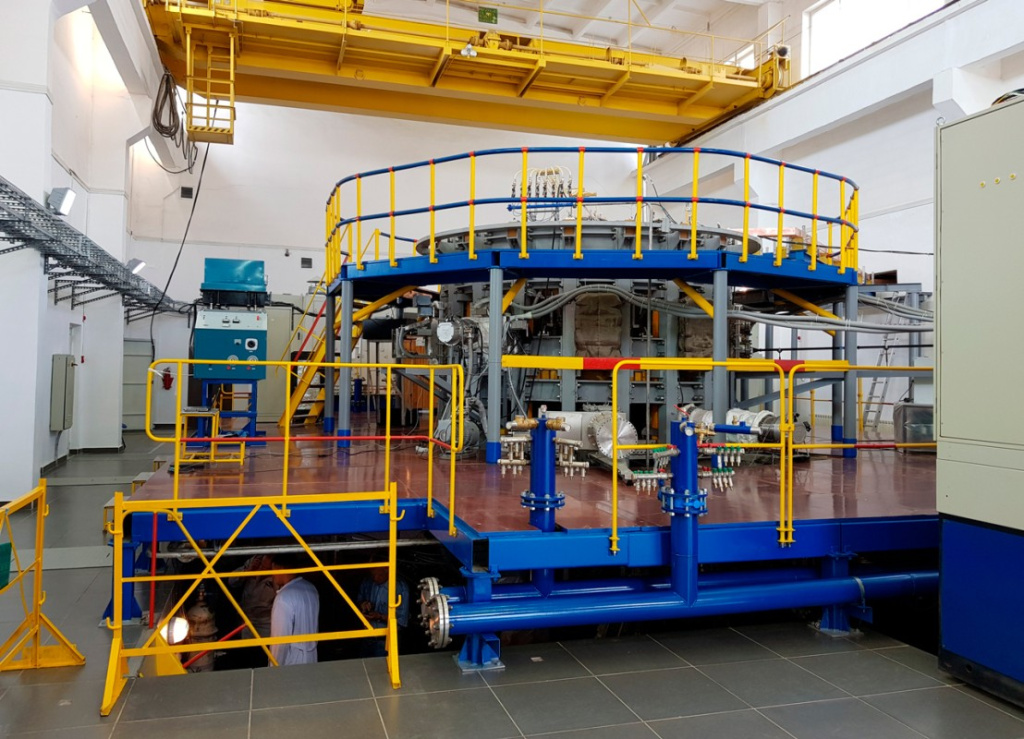
A total of 24 applications were shortlisted and three projects were selected as winners of the competition. They will receive a 30 million ruble grant for research projects to be carried out in 2023-2024.
The project named "Development and improvement of process and diagnostic systems of the tokamak KTM to generate high-temperature plasma and conduct research in materials science" was one of the competition winners. The research project will be undertaken jointly with the National Nuclear Center of the Republic of Kazakhstan and researchers from the Ioffe Institute and Efremov NIIEFA.
Tokamak KTM was primarily created for experimental research and testing of materials and design solutions. It was launched in November 2019.
The focal point of the research project lies in improving the efficiency of ion cyclotron (IC) heating of plasma to increase its temperature. The project participants will develop an optimized IC plasma-heating scenario. At the same time, the key prerequisite for this scenario is an improved control system for the position and shape of the plasma filament and plasma density. Researchers from the School of Nuclear Science and Engineering and the School of Computer Science and Robotics of Tomsk Polytechnic University will be collecting and processing experimental data, as well as improving the plasma control system.An installation of this class is always in flux. In such large-scale scientific projects, the participants are constantly facing more and more new challenges aimed at improving parameters or upgrading equipment. Researchers from Tomsk Polytechnic University have been engaged in the tokamak KTM project since the late 1990s. For instance, we have developed the control and automation system. Today the unit is up and running, but it requires further improvements to achieve higher parameters of plasma confinement and temperature. As a result, we plan to achieve extended plasma confinement time and higher plasma temperature up to thermonuclear parameters. These improvements will spur experiments at the Tokamak related to the effect of thermonuclear reactions on various types of materials. And the global goal of the project is to get equipped with new methods and principles of controlled thermonuclear fusion, which will be instrumental in creating new thermonuclear and hybrid energy systems,
The TPU team will develop new algorithms based on a mathematical model that covers a wide range of factors. The model will be used to select the optimal parameters ensuring plasma stability within the unit. Next, we are going to test it experimentally on the tokamak itself.The key challenge for our team is to develop circuits for quick plasma vertical position control and plasma density control. The point is that plasma within the unit is contained by magnetic fields. From the perspective of energy efficiency, vertically elongated plasma is more efficient, with higher pressure in the plasma exposed to the same magnetic fields. However, the plasma itself becomes unstable and any deviation from the equilibrium results in its moving with increasing speed towards the discharge chamber wall. This leads to the so-called plasma disruption and the abnormal termination of the experiment. We have been developing new algorithms for the tokamak control system, which would make it possible to keep the plasma stable. Then the discharge will be more powerful and long-lasting,